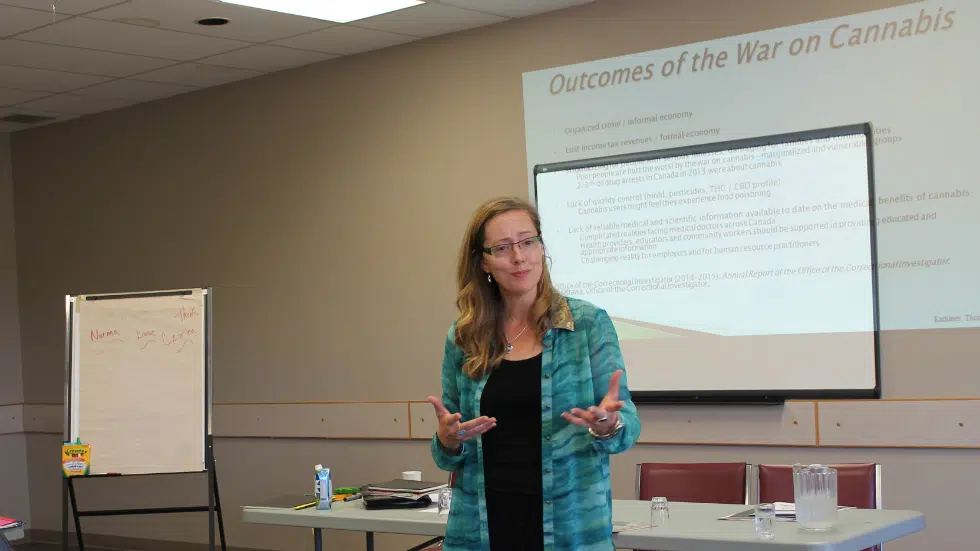
First Nation communities hear how legalized marijuana could offer new business opportunity
A number of area Indigenous communities had the opportunity to learn more about new business opportunities that could arise when marijuana is legalized next year.
Around 20 people gathered for the conference at the Jackfish Lodge Conference Centre at Battlefords Provincial Park Friday, to hear about what increased demand for marijuana could mean for entrepreneurs. Some of the communities who attended the conference included those from Witchekan Lake, Thunderchild, Onion Lake, Poundmaker, Mosquito, and Saulteaux First Nations.
The conference, organized by local Saulteaux First Nation business consultant Rod Gopher, included guest speaker Kathleen Thompson, a Regina-based business consultant and social worker.
“We’re going through the legislative changes in Canada, talking about legalization, how people enter the business if they are interested in pursuing a cultivation licence and being involved in the industry,” Thompson said. “There are also a lot of other professionals that serve the industry, such as IT, security, accounting, law, research, and pharmacy.”


